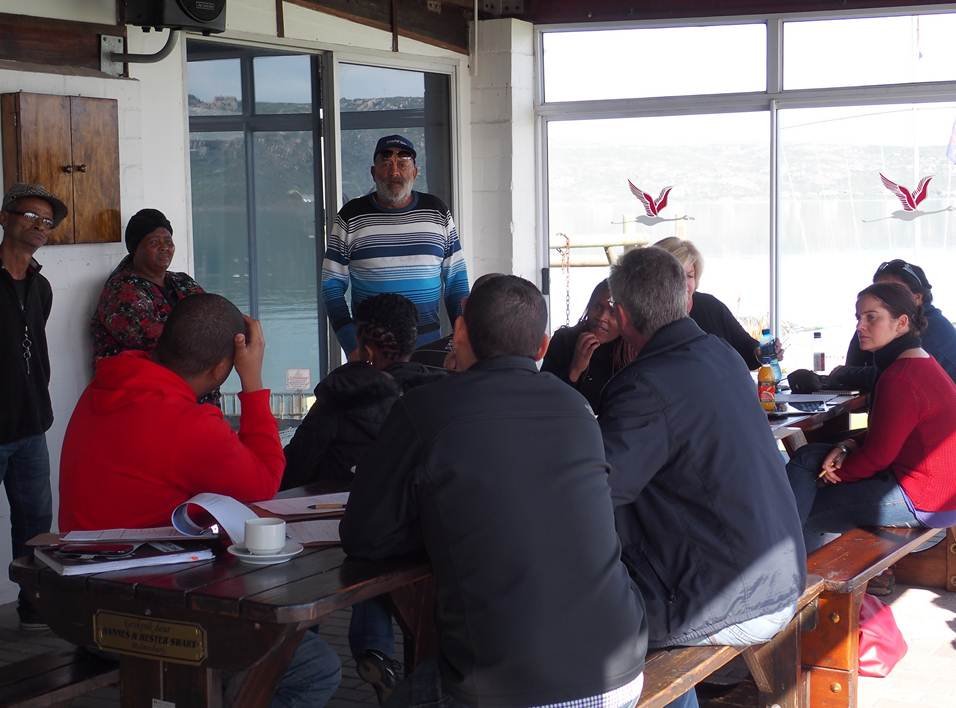The main aim of the voyage was to bring a number of the large retailers together with the fishers to engage around possible opportunities and constraints for collaboration between the two groups in the seafood sector. The journey included visits to small scale fisheries in Langebaan, Paternoster, Lambertsbaai and Doringbaai, where participants were exposed to some of the many issues facing small-scale fishers in South Africa.
Among some of the more contentious issues, such as fishing quotas, rights, access and lack of facilities, the need for a stable market without a middle-man emerged as a pressing concern. The opportunity here would likely be to establish an alternative market mechanism that allows greater seasonal flexibility, is more inclusive of all levels of fishermen and can provide equal benefits to all involved. Examples of alternative market mechanisms can be found in the chicken and vegetable industries in the Western Cape. The retailers were open to furthering the discussion on how they could help facilitate this process.
Other less obvious issues also found their way to the surface, where mismanagement in the upper levels of the small-scale fisheries support structure is preventing efficient operations on the shore. Also quite apparent in some of the smaller fisher groups is the risk of food insecurity, where it seems that many fishermen live a somewhat hand-to-mouth existence. Here, it is the lack of regular market access that drives fisherman to often have to eat their own catch or go hungry. Even if sales are achieved through the local tourism or restaurant industries, the cost of boat fuel and bait, coupled with a lack of management skills and training, means that any money that is received is cast straight back into the next day’s expedition.
While many problems still persist, and are made more difficult to manage from the perspective of a born and raised fisherman with the added pressure surrounding the seemingly middle-class concern of a sustainability-driven quota system, the fishermen remain largely positive. Furthermore, with organisations like the WWF at the helm – working closely on the ground with the fishermen to build these necessary support structures and remove blockages – there is certainly significant momentum to begin building a more inclusive, efficient and sustainable small-scale fisheries seafood supply chain.
From a food waste perspective, while fish waste is not a major component of the total losses by weight, it is in terms of economic value. Improved support structures in the industry mean increased access to better refrigeration, storage and packaging facilities, and more opportunities for processing of offcuts into value added products, resulting in less food waste. Find out more about 110% Green's Food Forward project here which aims to raise awareness around food wastage, catalyse action and reduce inefficiencies within the food value chain.
Pictures courtesy of Nicholas Wiid

